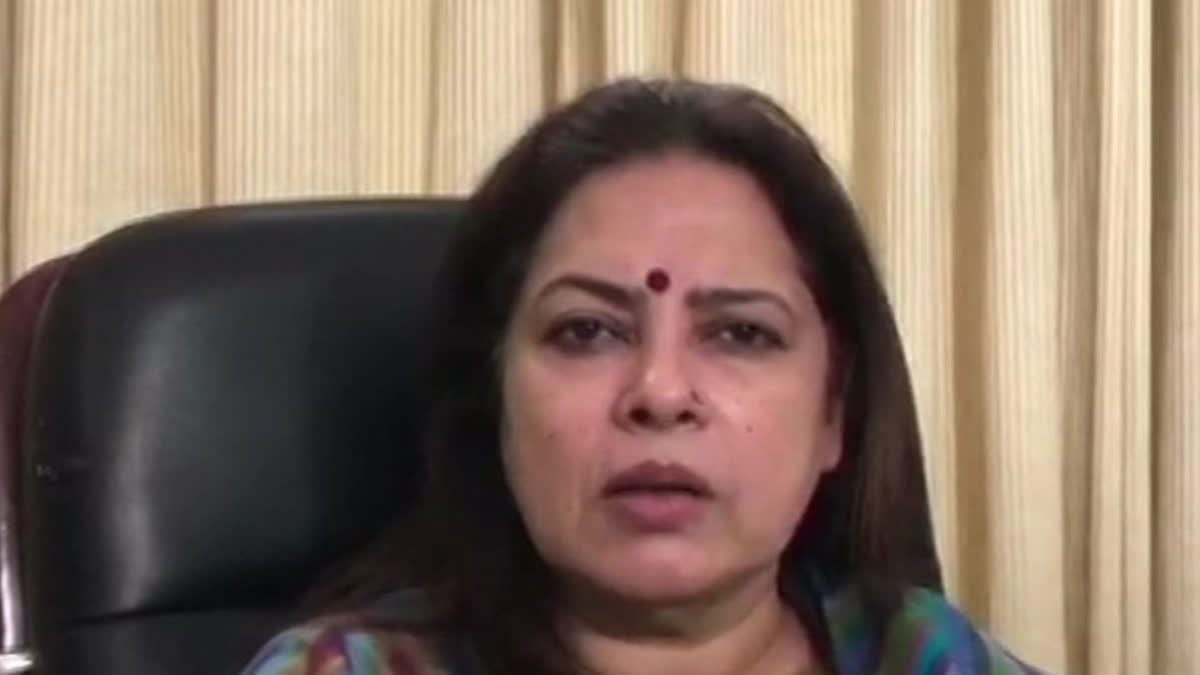Panaji: Union minister Meenakshi Lekhi on Tuesday said the Indian government should try to get a facsimile of Portuguese explorer Vasco da Gama's diary, which is in a museum abroad, saying it will help trace India's rich maritime history. She was talking to reporters after laying the keel for the construction of a "stitched ship" at a Goa-based shipyard in the presence of Chief of Naval Staff Admiral R Hari Kumar, member of the Prime Minister's Economic Advisory Council Sanjeev Sanyal and others.
The Union Minister of State for Culture and External Affairs urged the government to get the facsimile of Vasco da Gama's diary, which is in a museum abroad as documented by archaeologist late Dr Vishnu Shridhar Wakankar. "India cannot get the original diary back because Vasco da Gama was not our citizen. But we can get a facsimile of the diary so that we can trace the country's rich maritime history. The aim is to get correct facts based on the narrations by Dr Vishnu Shridhar Wakankar," she said.
Wakankar was a famous archaeologist and recipient of the Padma Shri award. "When late Wakankar went abroad to study, he found the diary of Vasco da Gama in one of the museums there. In that diary, he (Gama) mentioned how he went up to Zanzibar and when he reached Africa, he said he wanted to go to India. He saw a ship which was three times bigger than his," she said.
According to Lekhi, Vasco da Gama took help from a Gujarat-based merchant who was on his way back to India. "That merchant used to go to Africa with pinewood and teak (for trading) and return with diamonds. His name was Chandan. He (merchant) said that he is returning tomorrow and he asked Vasco da Gama to follow him," she said.
The minister said this diary is important to let us understand how big our shipbuilding industry was, how the country's shipping trade was spread across the globe and how the traders were operating. "When we are talking about shared civilisation exchanges, it would be better if we get the diary," she added. The ancient stitched ship is the brainchild of Sanyal, who is also a noted writer, economist and historian.
Referring to India's ancient maritime tradition, Sanyal said, "Indian traders are known to have sailed as far away as China and Korea in the 4th and 5th century BC. Even the Pandyan and Chola kings of South India sailed extensively 1,000 years ago. We are trying to recreate this history by building an ancient ship."
Admiral Hari Kumar said the country's navy was also reclaiming its own naval military history by adding 17th century Maratha warrior king Chhatrapati Shivaji Maharaj's royal seal (rajmudra) on its official insignia. Explaining the project in detail, Prathamesh Dandekar, managing director of Hodi Innovations, which is involved in it, said, "The project's primary goal is to revive and honour India's rich maritime tradition by meticulously constructing the ship using ancient techniques such as stitching planks with coconut fibres and treating the wood with natural resins and oils."
Once the "stitched ship" is ready, the navy will undertake a unique voyage along the traditional maritime trade routes using ancient navigation techniques, a navy spokesperson earlier said. The project was approved by the National Implementation Committee, chaired by the Union home minister as a commemoration project on December 14, 2022, the official said.
The Directorate of Naval Architecture of the Indian Navy engaged in several rounds of discussions with the Ministry of Culture, culminating in the signing of a tripartite agreement with M/s Hodi Innovations on July 18 for the construction of the ancient stitched ship. The stitching work will be undertaken by a team of traditional shipwrights, led by Babu Sankaran, who is an expert in stitched ship construction, the official said.
Using this age-old technique, the wooden planks will be shaped using the traditional steaming method to conform to the shape of the hull. Each plank will then be stitched to another using cords/ropes, sealed with a combination of coconut fibre, resin and fish oil akin to the ancient Indian shipbuilding practice, he said. (PTI)



